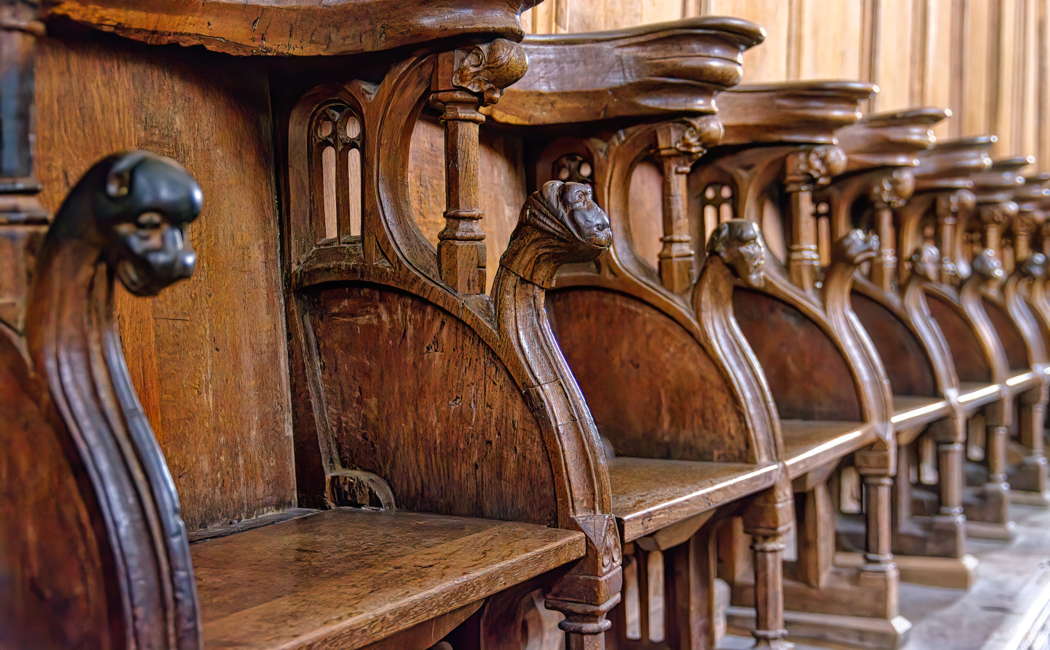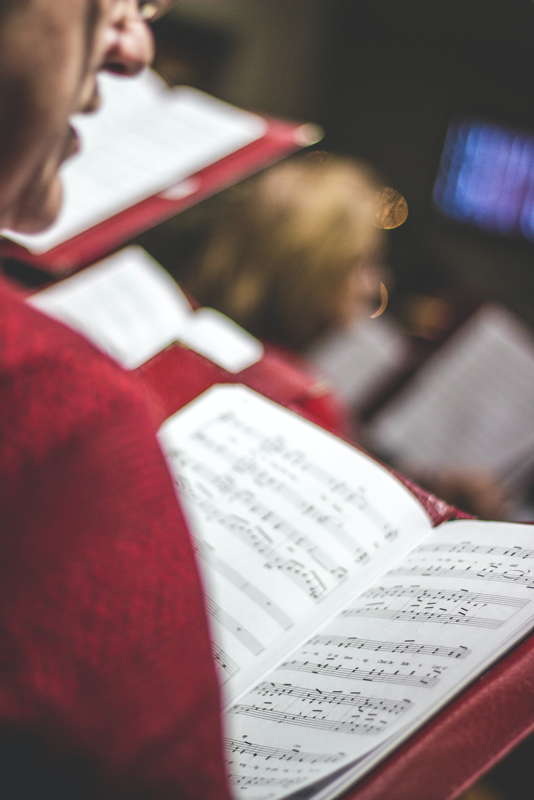 SPONSORED: Ensemble. A Great Start - Freddie Meyers' new opera A Sketch of Slow Time impresses Alice McVeigh.
SPONSORED: Ensemble. A Great Start - Freddie Meyers' new opera A Sketch of Slow Time impresses Alice McVeigh.
All sponsored features >>
YOUTH ENGAGEMENT IN CHORAL MUSIC

SCOTT BUTTERLY, who has grown up in the Anglican choral tradition, argues that choirs, in any form, allow young people to fully gain the benefits of classical music
A common theme I tend to spot in cathedrals is that young people are rarely attending unless it is with their own family on concert nights at Christmas or Easter time, when performances of the likes of The Messiah are popular. Although, according to The Guardian, The Church of England is only identified with by two percent of young adults, there is no scarcity when it comes to young people in cathedral choirs. Choir directors work tirelessly with outreach programmes in schools which aim to spark musical interest in children and provide children from a multitude of backgrounds an equal opportunity to explore and develop an interest in classical music.

Medieval choir stalls in Roskilde Cathedral, Denmark. Photo by Andreas Brunn
It is evident that cathedral choirs provide young people with a strong foundation in music and provoke an exploration of faith. They often provide children with music lessons and life experiences which many other children are not able to attain. They form the basis of youth engagement in choral music in the Anglican tradition.
Choirs in England are bursting with potential and choristership is a great way to allow children to develop in their musical ability, social skills and teaches them to work cooperatively with other members of the choir. Not only does it allow them to progress musically - it also allows them to develop spiritually, as bible study groups with members of clergy are common and allow children to develop in their journeys of faith.
From my own experience, choral music is the perfect way to engage in classical music. This is because not only does it provide you with regular listening but also allows you to be a part of the music and fully immerse yourself. Young people tend not to listen to classical music by their own accord because many of them would much rather be in the performance itself, which explains why choirs are flourishing with young people whereas congregations at choral services are not.

The tower of All Saints Church, Derby
- now Derby Cathedral - in 1889,
painted by Alfred John Keane (1864-1930)
When my voice changed and I left the Cathedral Choir of Derby (UK), I felt a strong sense of loss - a loss of routine, belonging and being able to explore my long-developed interest in choral music. As a result, I found myself being drawn back and so took up a choral scholarship.
During my absence I found myself being able to enjoy listening to choral music more often in my spare time. Composers such as Bach and Handel became part of my daily listening routine to the point where my listening was comprised mostly of classical composers. This is evidence that being involved in choral music at a young age enables you to fully immerse yourself in the experience of listening.

A painting by Edouard Hamman (1819-88) of G F Handel (centre) and King George I on the River Thames in the UK on 17 July 1717
Prior to being a chorister, I had not extensively explored classical music but my time as a chorister taught me to understand all the hard work that goes into choral music and as such, I naturally became more appreciative of it, which made me more inclined to be engaged with listening to it.
I think that choirs, in any form, allow young people to fully gain the benefits of classical music. Many children do not enjoy being coaxed into attending music lessons whereas going to choir to interact with your fellow choristers doesn’t seem like a burden but rather inspires you to be interested. Choirs provide the opportunities of building your confidence and appreciation in music alongside making lifelong friendships.

Choral singing. Photo by David Beale
We should all have a great deal of respect for the parents of children in cathedral choirs, as driving them to rehearsals and services is often disruptive to their daily routines. However, parents of choristers can often see the benefits of it and as such be proud in the knowledge that they are helping to preserve choral tradition.
Copyright © 26 June 2023
Scott Butterly,
Derbyshire UK



